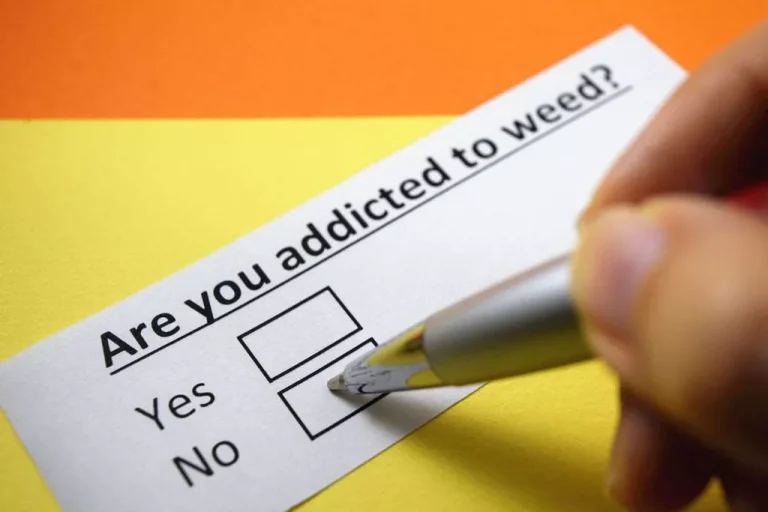
Some individuals may only experience mild withdrawal symptoms, while others may face more severe challenges. Therefore, it is crucial to seek professional guidance and support throughout the alcohol detox process. During alcohol withdrawal, the brain undergoes chemical imbalances that disrupt normal cognitive processes. The chronic consumption of alcohol can lead to brain atrophy, causing oxidative stress and cell injury.
Frequency and Quantity of Alcohol Consumption
With alcohol comes dehydration, neurotransmitter imbalance, and impaired sleep. Alcoholic drinks also come with toxic effects and cause nutrient depletion. However, the severity of brain fog varies depending on tolerance, use frequency, and amount of alcohol consumed. Alcohol can throw your mental gears out of sync, leaving you feeling sluggish and disoriented. There are simple, effective steps you can take to keep your brain sharp and skip the groggy, confused feeling after drinking. It affects your focus and memory, turning tasks that are usually second nature into frustrating challenges.
Report on alcohol and cancer risk challenges the safety of moderate drinking
- If you find that difficult, remember to hydrate, get enough rest, eat well, and exercise.
- Recovery from alcohol addiction is a lifelong journey that requires ongoing commitment and support.
- With continued sobriety, you may begin to notice improvements in your cognitive function over time.
- This recovery contributes to better motor skills, improved cognitive abilities, and more rational decision-making.
However, alcohol suppresses glutamate’s effects, leading to even slower brain activity. This decrease in brain activity not only affects alcoholism us while we’re drinking, but it can result in brain fog the next day. It’s also why we might have difficulty concentrating or recalling certain things. Brain fog and other cognitive impairments begin to improve within a few weeks of quitting alcohol, with continued progress over several months.
The Healing Process: How Long Does it Take for Your Stomach to Recover After Quitting Alcohol?
These factors contribute to the how long does brain fog last after drinking development of brain fog and hinder overall brain function. Like most detoxification treatments of addiction treatment programs, you can prepare your body to reduce the effects of alcohol on the body. Keeping your body well-hydrated and nourished with healthy and mindful dietary habits, can help counter the effects of alcohol.
- So, if you’re short on time, make sure to do some of these exercises to get your heart rate up.
- It’s no wonder that so many people report feeling foggy-headed after a night of drinking or even days after that.
- Insomnia, tremors, increased blood pressure, anxiety, and confusion are commonly reported.
- Some individuals may only experience mild withdrawal symptoms, while others may face more severe challenges.
- Consider supplements with natural ingredients to give your body what it needs to work at its best.
Alcohol dependence happens when our brain chemistry adapts to the presence of alcohol, leading to a reliance on it to feel ‘normal’. This dependence plays a significant role in the intensity and duration of brain fog during withdrawal. The more prolonged and heavier the alcohol use, the greater the probability that the brain fog will remain for a longer time. Individuals who do not hydrate adequately while drinking may find that their brain fog lingers longer after their last drink. Every individual metabolizes alcohol differently due to genetic factors, age, gender, and overall health. Those with faster metabolic rates may recover from the effects of alcohol more quickly, while others may experience prolonged symptoms.
How Long Does Brain Fog From Alcohol Last?
Is it neccessary to drink best https://ecosoberhouse.com/ brain supplements for adults or the best mood boosting supplements to overcome the fuzziness? One approach is incorporating herbs for mental clarity and superfood powders, which can help to mitigate some of the cognitive sluggishness experienced after drinking. Keep reading to discover how you can enjoy your social life while maintaining sharper cognitive health and learn how to get rid of brain fog migraine.

You may be covered by insurance for addiction treatment.
Even in early sobriety, brain fog can persist due to poor sleep, nutrition, and hydration. However, there are ways to prioritize cognitive health, such as exercising regularly, engaging in mentally stimulating activities, and eating well. It sounds simple, but a healthy exercise regime is not only essential for overall health but has significant benefits on cognitive function. Studies have even suggested that prolonged exercise may improve executive function and decrease compulsive behaviours in addiction-prone individuals (Costa et al., 2019). It is important to remember that your body is going through a lot when you first stop drinking alcohol.

Do not disregard, avoid or delay obtaining medical or health related advice from your health-care professional because of something you may have read on this site. The use of any information provided on this site is solely at your own risk. A research team at Ohio State is testing a targeted gene therapy approach to treat alcohol addiction. Naltrexone can be used to help reduce binge drinking by blocking the brain’s receptors that trigger euphoria or calmness when you drink. Some healthy adults can become sick from consuming even a small amount of alcohol. Knowing your limits is a key factor in preventing hangovers and symptoms of anxiety during a hangover.
Why does alcohol cause brain fog?

Comprehensive programs cater not only to withdrawal but also to the longer-term process of cognitive healing and personal growth. By consulting a healthcare provider, individuals can receive medication, therapy, and referrals to recovery programs that align with their specific circumstances. Additionally, healthcare providers can aid in monitoring progress and adjusting treatment plans as recovery advances. For the brain to reestablish normal cognitive function, a minimum duration of two weeks is generally required, although this can fluctuate depending on individual circumstances. The size and mass of the brain, which may have diminished as a result of severe alcohol use disorders, also start to revert toward nonalcoholic comparisons, albeit this is a more protracted process. For those seeking to restore cognitive function after quitting alcohol, patience and professional support are crucial components of the recovery timeline.
Alcohol is a widely consumed substance that can have varying effects on the body. Most drinkers are familiar with hangovers, particularly after indulging in excess or binge drinking. However, the lingering brain fog that follows is more than just a prolonged hangover; it reflects deeper disruptions in brain chemistry that can affect mental clarity for days. If you find that brain fog persists or is significantly affecting your daily life, consider consulting with a healthcare professional. They can provide personalized guidance and support, and help you navigate any underlying issues.